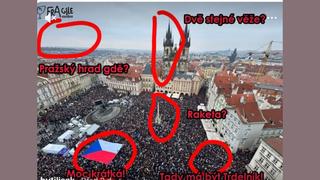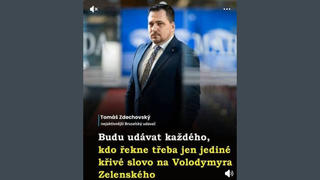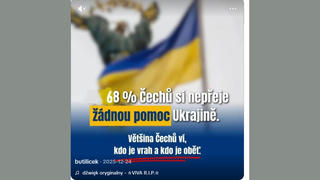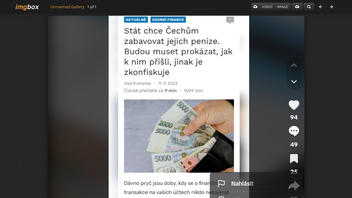
Is the Czech government preparing measures to allow it to seize money from indviduals' accounts, if they cannot prove its origin? No, that's not true: the Czech government is not planing to seize money from individuals' accounts, but it is in the process of devising measures to combat illicit financial flows. The government has tasked the justice minister with drafting legislation to address the issue of money laundering involving funds of uncertain origin passing through Czech bank accounts.
The claim appeared in a video (archived here) that was published by TikTok on September 11, 2023, with captions that included the words "conspiracy", "corruption", "crook" and the names of the Czech Prime Minister Petr Fiala and the Interior Affairs Minister Vit Rakusan. The video uses a snapshot of an article from the Mix24.cz website, which reads:
The state wants to seize money from the Czechs. They will have to prove where they got them from, otherwise it will be confiscated.
This is what the post looked like on TikTok at the time of writing:
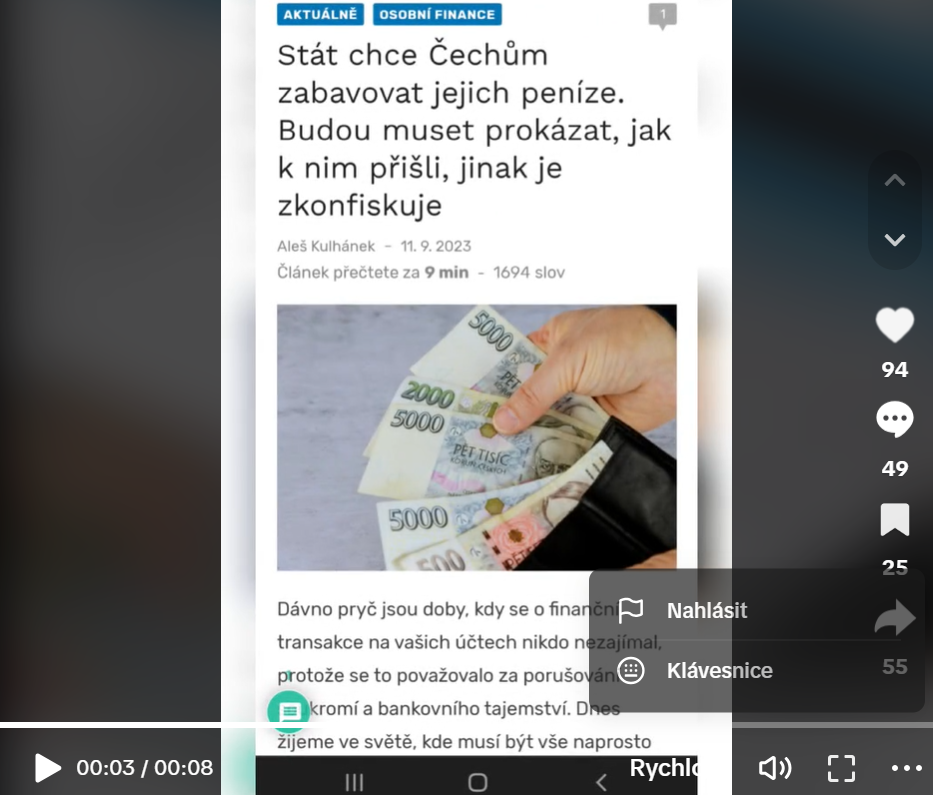
(Source: TikTok screenshot taken on Fri Sep 22 07:46:55 2023 UTC)
The Czech government is formulating strategies to combat unlawful financial transfers from foreign sources, frequently involving Czech-registered bank accounts used for international money transfers. On August 23, 2023, the cabinet assigned the justice ministry to prepare a bill to counter money laundering. According to the bill, the owner of the bank account will now have to prove that the money was obtained through legal activities and was not transferred to a Czech account with the intention of concealing its origin. As per the existing legislation, the responsibility for establishing proof in money laundering cases rests with the state authorities.
The Czech Republic is following the example of Latvia, a country that adopted similar anti-money laundering measures a few years ago, after it was hit by a series of corruption scandals. Latvia closed its third-largest ABLV bank in 2018 after U.S. authorities accused it of money laundering and violating U.S. sanctions. In the past, many financial institutions in the country had promoted themselves as a gateway to financial markets for clients from the former Soviet Union states.
Since the Baltic state tightened the anti-money laundering measures, some illegal money transfers have moved from Latvia to the Czech Republic, Lukas Kraus, an analyst from a Czech NGO, the Reconstruction of the State, said on August 22, 2023. The NGO also called on the government to speed up the new legislation as the justice ministry is scheduled to submit the draft to the government in December 2024. The Czech news weekly Hrot reported on March 23, 2023, that the new measure could include transfers over 5 million koruna, but the amount could change as the proposal is being worked on.
Under the current legislation, it is the responsibility of the authorities, not the owner of the bank account, to prove their case. This led to a situation where Czech authorities decided to close the investigation into suspicious transfers of 750 million koruna to a small Czech company from the Afipsky refinery, which is controlled by Mikhail Gutseriyev, a Russian businessman subject to EU sanctions. After two years of investigation, the police had to release the frozen funds because they couldn't establish their criminal origin, despite uncovering clear signs of money laundering activity, as reported by DenikN on April 6, 2022.
The fact that the burden of proof lies with the authorities, not the bank account owner, under the current legislation, resulted in the Czech authorities dropping the case of suspicious transfers of 750 million koruna to a small Czech company from the Afipsky refinery, controlled by Mikhail Gutseriyev, a Russian businessman on the EU sanctions list. Despite discovering all indicators of money laundering activity, the police unfroze the money after a two-year investigation because they were unable to establish its criminal origin, as reported by DenikN on April 6, 2022.




